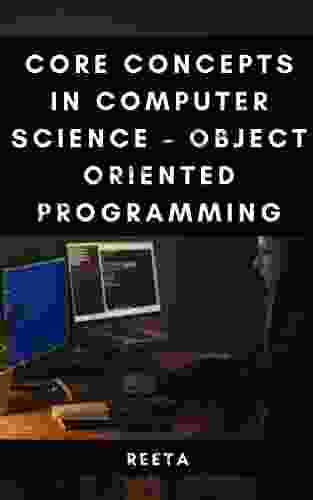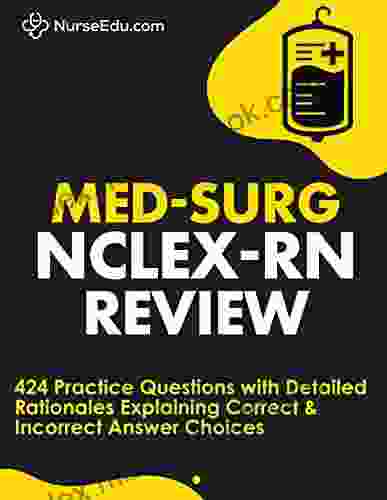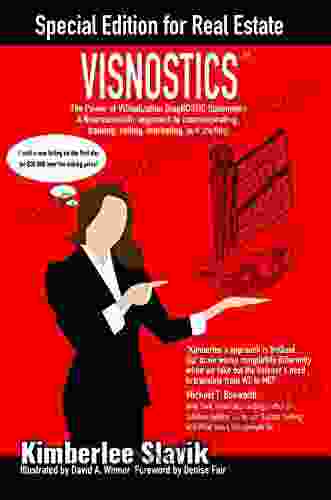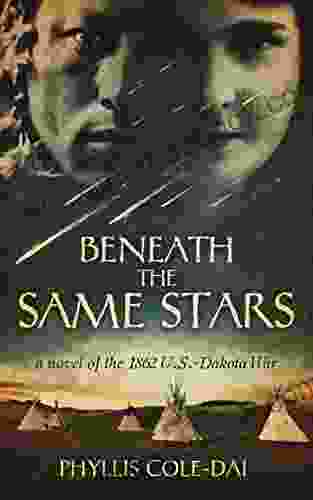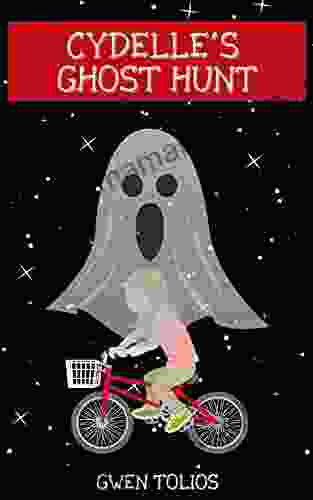Core Concepts in Computer Science: Object-Oriented Programming

Object-oriented programming (OOP) is a programming paradigm that revolves around the concept of objects. An object is a self-contained entity that combines data and the operations that can be performed on that data. OOP provides a structured and modular approach to software development, making it easier to design, implement, and maintain complex systems.
In OOP, a class is a blueprint that defines the structure and behavior of a particular type of object. A class contains the data members and methods that are common to all objects of that type. Objects are instances of a class that represent specific entities in the real world.
For example, consider a class called "Person" that defines the properties of a person, such as name, age, and address. Each object created from the "Person" class will represent a specific person, with its own unique set of data values.
4 out of 5
| Language | : | English |
| File size | : | 338 KB |
| Text-to-Speech | : | Enabled |
| Enhanced typesetting | : | Enabled |
| Print length | : | 19 pages |
| Lending | : | Enabled |
| Screen Reader | : | Supported |
Inheritance is a mechanism that allows classes to inherit the properties and methods of their parent classes. This allows for the creation of new classes that are specialized versions of existing classes.
For example, a class called "Employee" could inherit the properties and methods of the "Person" class, and add additional properties and methods specific to employees, such as employee ID, salary, and department.
Polymorphism is a concept that allows objects of different classes to respond to the same message in different ways. This is achieved through method overriding, where subclasses can provide their own implementation of a method inherited from a parent class.
For example, the "Person" class could have a method called "introduce()" that simply prints the person's name. The "Employee" class could override this method to also print the employee's job title and department.
Encapsulation is a principle that ensures the data and behavior of an object are bundled together and only accessible through well-defined interfaces. This helps to maintain the integrity of the object and promotes code reusability.
For example, the "Person" class could encapsulate its data members by making them private and only providing public methods to access and modify them. This prevents other parts of the program from directly accessing and manipulating the person's data.
OOP offers numerous benefits, including:
- Modularity: OOP breaks down large programs into smaller, manageable modules, making them easier to develop and maintain.
- Reusability: OOP promotes code reusability through inheritance and polymorphism, reducing development time and effort.
- Extensibility: OOP allows for the easy addition of new features and functionality through inheritance and polymorphism.
- Maintainability: OOP provides a clear and organized structure for code, making it easier to maintain and update.
- Scalability: OOP supports the development of complex and scalable systems through modular design and encapsulation.
OOP is widely used in a variety of applications, including:
- Operating systems: OOP is used in the design and development of operating systems, such as Windows and Linux.
- Database management systems: OOP is used in the development of database management systems, such as MySQL and Oracle.
- Web development: OOP is used in the development of web applications, such as social media platforms and e-commerce websites.
- Mobile applications: OOP is used in the development of mobile applications, such as games and productivity tools.
- Artificial intelligence: OOP is used in the development of artificial intelligence systems, such as machine learning and natural language processing.
Object-oriented programming is a fundamental paradigm in computer science that provides a structured and modular approach to software development. By encapsulating data and behavior within objects, OOP promotes reusability, maintainability, and scalability. Understanding the core concepts of OOP is essential for aspiring software developers and anyone looking to deepen their knowledge of computer science.
4 out of 5
| Language | : | English |
| File size | : | 338 KB |
| Text-to-Speech | : | Enabled |
| Enhanced typesetting | : | Enabled |
| Print length | : | 19 pages |
| Lending | : | Enabled |
| Screen Reader | : | Supported |
Do you want to contribute by writing guest posts on this blog?
Please contact us and send us a resume of previous articles that you have written.
 Top Book
Top Book Novel
Novel Fiction
Fiction Nonfiction
Nonfiction Literature
Literature Paperback
Paperback Hardcover
Hardcover E-book
E-book Audiobook
Audiobook Bestseller
Bestseller Classic
Classic Mystery
Mystery Thriller
Thriller Romance
Romance Fantasy
Fantasy Science Fiction
Science Fiction Biography
Biography Memoir
Memoir Autobiography
Autobiography Poetry
Poetry Drama
Drama Historical Fiction
Historical Fiction Self-help
Self-help Young Adult
Young Adult Childrens Books
Childrens Books Graphic Novel
Graphic Novel Anthology
Anthology Series
Series Encyclopedia
Encyclopedia Reference
Reference Guidebook
Guidebook Textbook
Textbook Workbook
Workbook Journal
Journal Diary
Diary Manuscript
Manuscript Folio
Folio Pulp Fiction
Pulp Fiction Short Stories
Short Stories Fairy Tales
Fairy Tales Fables
Fables Mythology
Mythology Philosophy
Philosophy Religion
Religion Spirituality
Spirituality Essays
Essays Critique
Critique Commentary
Commentary Glossary
Glossary Bibliography
Bibliography Index
Index Table of Contents
Table of Contents Preface
Preface Introduction
Introduction Foreword
Foreword Afterword
Afterword Appendices
Appendices Annotations
Annotations Footnotes
Footnotes Epilogue
Epilogue Prologue
Prologue Aaron B Daniels
Aaron B Daniels Nicole Sletten
Nicole Sletten Dimitrios Kravvaris
Dimitrios Kravvaris Jan Porter
Jan Porter Daphne Oz
Daphne Oz Kendra Decolo
Kendra Decolo Toby J Karten
Toby J Karten D T Adams
D T Adams Alexis E Fajardo
Alexis E Fajardo Chuck Dixon
Chuck Dixon Kiera Stipovich
Kiera Stipovich Kim Adams
Kim Adams Steve Galluccio
Steve Galluccio Irene Vasilachis De Gialdino
Irene Vasilachis De Gialdino Marquis De Sade
Marquis De Sade Kimberly Mattina
Kimberly Mattina Jennifer Youngblood
Jennifer Youngblood Benjamin Law
Benjamin Law Clara Parkes
Clara Parkes Angela Marsons
Angela Marsons
Light bulbAdvertise smarter! Our strategic ad space ensures maximum exposure. Reserve your spot today!
 Desmond FosterFollow ·19.5k
Desmond FosterFollow ·19.5k Pat MitchellFollow ·10.6k
Pat MitchellFollow ·10.6k Edgar CoxFollow ·9.7k
Edgar CoxFollow ·9.7k Nikolai GogolFollow ·14.6k
Nikolai GogolFollow ·14.6k Jeffrey HayesFollow ·11.7k
Jeffrey HayesFollow ·11.7k Joseph ConradFollow ·11.5k
Joseph ConradFollow ·11.5k Terry PratchettFollow ·2k
Terry PratchettFollow ·2k Jan MitchellFollow ·7.9k
Jan MitchellFollow ·7.9k

 Dwight Bell
Dwight BellSlightly Higher Interval Training For 5k Runners: A...
Interval training has become an...
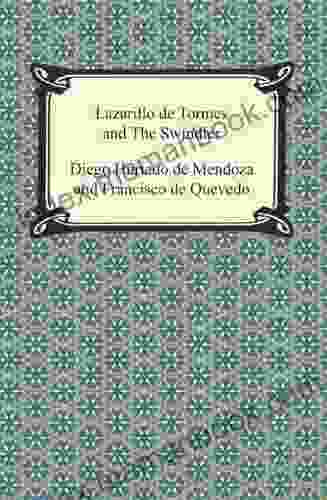
 Jordan Blair
Jordan BlairLazarillo de Tormes and the Swindler: A Tale of Deception...
The story of Lazarillo de...
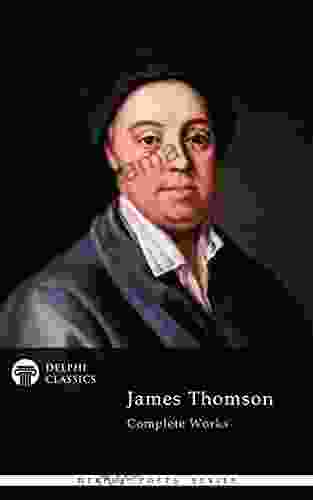
 Grayson Bell
Grayson BellDelphi Complete Works Of James Thomson Illustrated Delphi...
: Unveiling the...
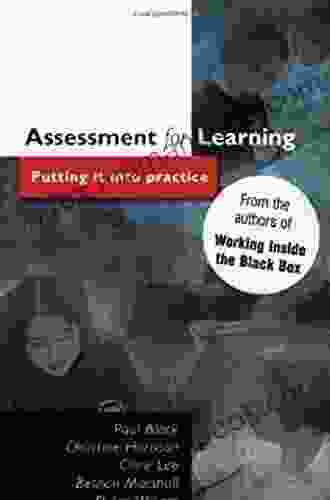
 Cooper Bell
Cooper BellAssessment For Learning (UK Higher Education OUP...
Assessment plays a crucial role in higher...

 Luke Blair
Luke BlairThis Is How Knew: A Comprehensive Guide to Unlocking Your...
Have you ever wondered if...
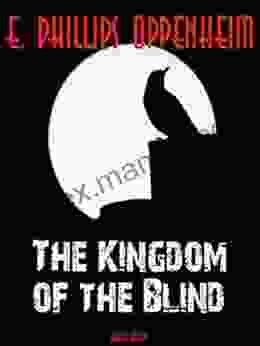
 Forrest Blair
Forrest BlairExploring the Kingdom of the Blind: A Deep Dive into an...
The Kingdom of the...
4 out of 5
| Language | : | English |
| File size | : | 338 KB |
| Text-to-Speech | : | Enabled |
| Enhanced typesetting | : | Enabled |
| Print length | : | 19 pages |
| Lending | : | Enabled |
| Screen Reader | : | Supported |


